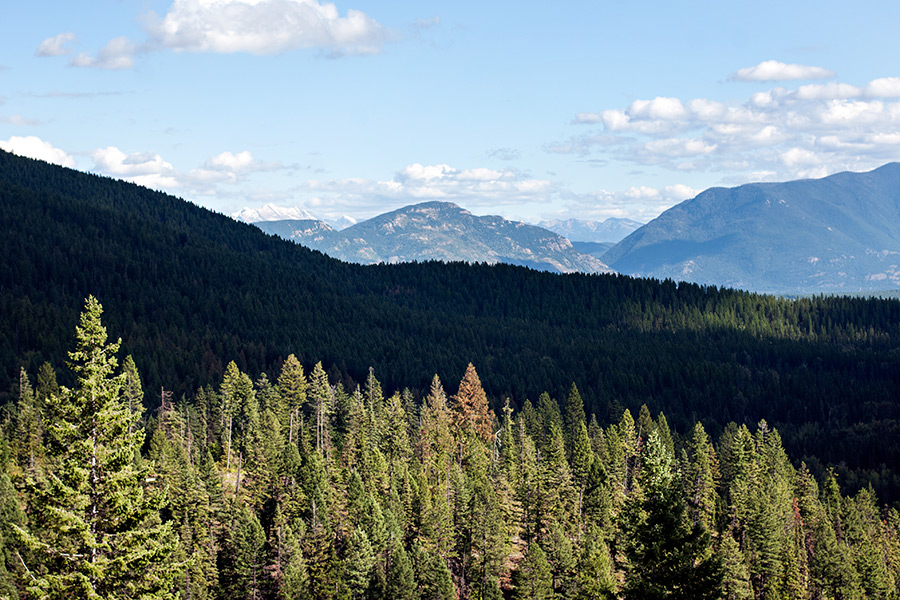Voters in Whitefish will decide whether to increase the city’s resort tax from 2 percent to 3 percent to help fund a conservation easement in Haskill Basin.
The Whitefish City Council voted 5-1 on Tuesday to seek voter approval for the rate increase. The special election will be held April 28 with mail-in ballots.
Councilor Jen Frandsen opposed the resolution while several business owners spoke up during the meeting raising concerns that the heightened rate would negatively impact retail businesses that incur the fee on goods and services.
Other alternatives could be raising the city’s water rates or approving a general obligation bond.
City officials are trying to find funding sources to help acquire a conservation easement on prime land owned by the F.H. Stoltze Land and Lumber Co. and located beside Whitefish Mountain Resort on Big Mountain, a tract of land vulnerable to pressures of development and the source of 75 percent of the municipal water supply in Whitefish.
If passed, the revenues generated through Jan. 31, 2025 – the date when the existing resort tax expires and goes back to Whitefish residents for a vote – would be used to fund the $8 million needed for the conservation easement. Twenty-five percent of the 1 percent increase would be rebated to taxpayers in a similar fashion to how the current 2 percent works.
Supporters of the resort tax increase gathered in Whitefish on Friday afternoon.
“This conservation easement is of historic significance for Whitefish,” said Mayor John Muhlfeld. “For over 100 years, Stoltze has allowed the city to access their lands to manage our water diversions in Haskill Basin on little more than a handshake. This easement will permanently protect our water supply and make legal all the rights we require as a municipality to operate, maintain, and deliver clean water to our residents and visitors.”
Last year, Stoltze and the nonprofit Trust for Public Lands reached a deal that would keep the land permanently protected for water, wildlife and recreation uses, while still allowing Stoltze’s sustainable timber management to continue.
Stoltze values the land at $20.6 million, but the company has offered to sell it for $17 million, according to Alex Diekmann, project manager for the Trust for Public Land, which is the nonprofit organization working to raise money from federal programs, private donors and public funding sources in order to bring the deal to fruition.
Earlier this year, the project received a funding boost from the U.S. Forest Service, which ranks such projects for funding through its Forest Legacy Program, awarding grants to states to purchase permanent conservation easements.
The agency has given the Haskill Basin Watershed Project its No. 1 spot, positioning it to receive $7 million in Legacy Project funding. An additional $2 million will come from the U.S. Fish and Wildlife Service’s Habitat Conservation Plan Land Acquisition Program. Together, the grants give the project significant purchase toward raising the $17 million needed to buy the development rights from Stoltze by the end of 2015, leaving a balance of about $8 million.
On Feb. 2, the Whitefish City Council hosted a work session at council chambers, gearing the discussion toward identifying avenues of funding.
Following the meeting, which drew about 100 people, the council voted to draft the resolution for a resort tax increase after community members and business owners voiced support for a ballot measure.
While some business owners balked at the notion of raising the resort tax as it could impact sales, smaller retailers supported such a measure, while community members in the outlying Whitefish “doughnut” said their only means of contribution would come through a resort tax, since they are not subject to city property taxes.
According to city data tracking resort tax collection since it was implemented 17 years ago, the three sectors subject to resort taxes – motels, bars and restaurants and retail – have seen an average annual uptick in resort tax collection of more than 6 percent, with the bulk – 45 percent – coming from retail. The data shows that, following the resort tax, the aggregate retail sector did not decrease in sales and resort tax collections, and continued to increase until two years during the recession.
